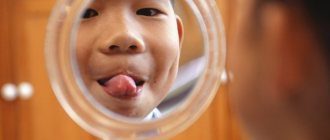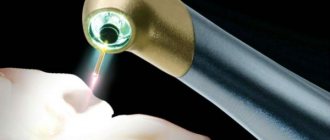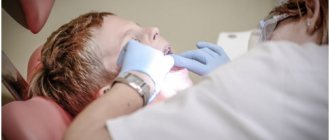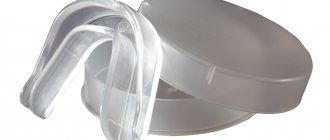body .attr-article__date{ background: none; padding: 0; }
NEAD EAD SEAD South Administrative District South-Western Administrative District CJSC Central Administrative District SZAO Northern Administrative District 01 02 03 05 06 07 08 09 1 0 1 1 1 2 14 18 15 16 17 Babushkinskaya Prospekt Mira Pervomaiskaya Baumanskaya Paveletskaya Teply Stan Shipilovskaya Prague Academic University Barrikadnaya River Station Oktyabrskoye Bratislava Taganskaya Academician Yangelya October Field
The call center is open 24 hours a day
Ambulance 24/7
Home Health from A to Z Useful information Preparing a child for the first visit to the dentist
Date of publication: 04/04/2016
until January 31
We are giving away 1000 rubles for all services for a visit in January More details All promotions
Is psychological preparation necessary for a child’s first visit to the dental office? - Of course, it is necessary. Its main goal is to prevent your child from feeling nervous or anxious before visiting the clinic, and to encourage the child to cooperate with the doctor.
Top tip:
Child at a dentist appointment
- If the reason for the visit is pain:
convince the child that the dentist will help - the pain will become less or go away completely. - If there is no pain and the first visit to the dentist is done as planned:
you should not try to prevent the child’s negative reaction by saying: “don’t be afraid,” “it won’t be scary,” “it won’t hurt.” He doesn’t yet know that he should be afraid of something. It is better to set your child up for a positive outcome from the visit.
You can say to small children: “The doctor will look at their teeth, brush them, and they will be happy.” For older children, rational argumentation is appropriate: “Go to the dentist, your teeth will be healthy and beautiful.”
Some more general tips:
- When going to the dentist, do not focus on this.
- Do not emphasize the importance, exclusivity, or even more so the unpleasantness of the event. A visit to the doctor should be a given.
- Don't say that the doctor won't do anything.
- This is not true, and then the child will understand that he was deceived. Tell them that the doctor will look at your teeth and treat them if they are sick.
- Do not use the “scary” words “prick”, “drill”, “drill”, “drill”.
- You can play at visiting a doctor.
Tell us how to enter an office, sit in a chair, open your mouth and keep it open. Do every action with your child, take on the role of a doctor.
Preparing children for dentistry: main problems
Young patients can be divided into three categories:
- The children have not yet been to the doctor, and the planned visit to the dentist will be the first.
- The first experience of communication turned out to be negative - the child is now afraid of the dental office and any manipulations.
- All previous meetings with the doctor took place in a positive direction, and the children have no negative emotions towards treatment.
If we talk specifically about fears, a child at the dentist may be afraid of:
- direct dental intervention - injections, drills, instruments;
- the doctor himself - rude attitude, sudden movements, appearance.
Any fear can be banished. Parents themselves can do this by patiently and thoughtfully relieving the child’s anxiety and correctly combining psychological communication techniques. Or through an adaptation visit to the dental clinic. In the second case, doctors who have undergone special education and training will deal with the child’s fears and show him that dental treatment is not scary.
Modern view on dental treatment in children
Modern technologies make it possible to perform dental treatment in Minsk in your sleep. Most experts agree that the child should not be subjected to unnecessary stress, but that it is better to treat all the teeth at once under sedation. In most cases, the child no longer needs to be persuaded for hours. While the child is sleeping, the doctor treats all teeth that need sanitation.
Advantages of dental treatment under anesthesia
- absence of stress and psychological trauma for the child;
- the opportunity to treat teeth with high quality;
- treatment is quick;
- You can perform all manipulations in one go: from treatment to removal.
Modern anesthesia drugs are absolutely safe for health; they are intended for short-term effects. During treatment, an anesthesiologist must be present to provide sedation. On the eve of dental treatment under sedation, the doctor will definitely collect an anamnesis to find out all possible contraindications.
In a dream, you can now both insert teeth and remove teeth .
How to take your child to the dentist: secrets of persuasion
Preparing children for dentistry includes individual and general recommendations. Adults need to behave reasonably and adhere to certain rules:
- Treats a future meeting with a dentist calmly – as an everyday event.
- If you have your own negative experience, do not discuss it with your children - pleasant events and quality treatment are worthy of mention.
- On the day of the appointment, maintain a good mood for the child - avoid any conflicts, quarrels, and also do not focus on the future meeting with the doctor.
- Avoid deception, talk correctly about the dental clinic and procedures. If you cannot find the right words to explain the dentist’s actions, it is better to sign up for a preliminary adaptation appointment, where specialists will competently talk to the child.
- Schedule an appointment within the framework of the child’s routine - so that the baby does not want to sleep, eat, go for walks and does not have to cancel significant school or extracurricular activities.
- Feed before visiting the dentist - about an hour and a half.
The best algorithm for all ages is systematic visits to the dentist from the moment the first baby teeth erupt. Frequent appointments create a routine attitude, and routine examinations prove that there is nothing scary in the dental chair. If you go to the dentist when your teeth already hurt, you definitely can’t do without preparation.
Rodikova Tatyana
“A child who visits the dentist every six months is immediately visible. The patient confidently enters the office, climbs into the chair without embarrassment, and does not need to be persuaded. The examination takes place without whims or tears, in an atmosphere of jokes and good stories. By the way, I would like to note that the teeth of such children are usually fine - clean, well-groomed, healthy.”
General advice applies to everyone: both children and teenagers. But there are also separate recommendations for each age.
9 ways to avoid childhood fears before visiting the dentist
Children are often afraid of doctors, and especially dentists. Even cartoons during the visit and promises of sweets and toys afterward don’t help. Our blogger, psychologist Anita Vayakanti, tells us how to cope with this fear and prepare a child for a visit to the dentist.
Useful Mela newsletter twice a week: Tuesday and Friday
SUBSCRIBE
I myself was afraid of dentists until I was 22, until I got braces. Then I had to look fear in the eye and undergo several serious surgical interventions. After this experience, I am not afraid of any removal or treatment of caries. But in this case, both age and my understanding that this was for the good played into the hands. This is unlikely to happen with children. Because it’s really unpleasant to be in the dentist’s chair, and the sounds that both the instruments and the dentist himself make when examining your teeth make you scared.
That is, the option “to imprison by force” does not work in the fight against fear. Moreover, doing this “forcibly” or “without warning” can activate even more fear and hostility towards dentists.
By the way, this is exactly what happened to me. When my brother and I were 4.5 years old, my parents and I went to India for several months. Apparently I had a toothache there. I barely remember the toothache, but I clearly remember how they held me by force and pulled out my unfortunate aching tooth without anesthesia. The fear was recorded.
To avoid a repetition of the same scenario and turn a trip to the dentist into an enjoyable procedure, I suggest using the following recommendations:
Prepare your child
A visit to an uncle or auntie in a white coat should not be a surprise. Discuss the upcoming trip with the children in a playful way: “Once upon a time there were white teeth, everything was fine with them, every morning and evening they were cleaned with a pleasant ointment. But one day microbes came to visit them, they noticed that one tooth was not the whitest, and decided to make friends with it. They liked living on the tooth, so much so that their leader came - Caries. These uninvited guests caused a lot of trouble. He stopped rejoicing and even began to get sick. Every day the tooth got worse and worse, but we (pointing at ourselves and the child) decided to call the Doctor to help the tooth get rid of caries.”
After such an introduction, you can tell what the doctor will have, and - most importantly - what will happen after. With older children you can speak directly, warn, explain and tell. It is important here not to cultivate fear, but not to devalue it either. That is, accept the child’s feelings: “I know you’re scared, but I’ll be there for you, and after...”
Correct time to visit
Early morning (when the nervous system is still “sleeping” or the child simply does not like getting up), as well as late evening (when the child is tired and his central nervous system is also tired) is not the most favorable time for a visit to the dentist. It is very important that the time is comfortable for the child.
Support
Support your child, be there and be proud of his courage and determination: “You are brave and strong! I’m very proud of you”, “Well done, you did it, but I never doubted you!”, “Imagine, you’re braver than I was as a child!”
First (repeated) trip to the dentist with a child 3-5 years old
Preparing a child for the dentist involves simple explanations of the doctor’s actions. Kids perceive the world through play, so the best ways to “talk” about reception are:
- game scenarios - examine the mouth of a soft hippopotamus, treat caries of baby teeth of a stuffed dog, play in the situation “a doll comes to the doctor”;
- various crafts and storytelling - make a tooth from plasticine and a harmful worm that is trying to damage the craft, or draw a “dirty” tooth and boldly erase the dirt with an eraser;
- watching cartoons - individual thematic tales about teeth and doctors, as well as series about visiting the dentist with your favorite cartoon characters;
- exciting teeth cleaning - during the process you can talk interestingly about the work of the doctor, removing dirt from teeth with a special vacuum cleaner and saving teeth from evil microbes.
If fear and mistrust persist, it is worth rescheduling the examination and making an initial introductory appointment. Having been in a beautiful office and touched all the tools, the baby will be imbued with confidence and will stop worrying.
How to behave at an appointment with a pediatric dentist
Before placing your child in the chair, give him some time to look around and get comfortable. Introduce him to the doctor and assistant, try to make the baby feel confident and safe. If he refuses to sit in a chair alone, try sitting there yourself, take the little worried man on your lap. Our family dentistry center offers children and their parents the opportunity to have a first introductory visit to meet the doctor and tour the office itself. During the first visit, the doctor usually performs the following manipulations:
- visual examination of the oral cavity, as well as assessment of the correct growth and formation of the dental system, identification of possible problems with teeth and soft tissues,
- gentle cleaning if necessary: at the first appointment, the baby can be carefully cleaned from plaque and polish the enamel,
- x-ray examination,
- detailed consultation on maintaining oral hygiene.
Preparing a 5-8 year old child for dentistry
Age is not easy. Children already have their own opinions, ignore fairy-tale scenarios and have experience communicating with doctors. Even if the first visits to the dentist were successful, a preschooler may suddenly be afraid of a new visit.
Tips for parents:
- A detailed, correct story about the appointment - what the doctor will do, why you need to go to the dentist, what manipulations are possible.
- Authoritative opinion - dad, older brother or sister can talk about dental treatment, emphasizing the painlessness of the procedures and the friendliness of the doctors.
- Parents' trust - adults' emphasis on the fact that the doctor is wonderful increases the child's positive attitude.
Plaksina Margarita
“You shouldn’t ignore preparing for the reception of a schoolchild. Even with successful experience before! See for yourself. At the child’s previous appointment, for example, a baby tooth was removed. He did not cry and patiently endured dental procedures. But memories of slight discomfort could remain, and they could easily become the reason for refusing a new visit to the surgeon. Preparation will eliminate fear and help you communicate calmly with your doctor.”
The importance of prevention
Many mothers and fathers are subject to the mistaken opinion that it is not worth treating baby teeth at all, because their service life is very short and soon the baby teeth will be replaced by a permanent one. However, this belief is fundamentally wrong, since the formation of the rudiments of permanent teeth directly depends on the condition of temporary teeth. Caries or pulpitis in an advanced form can negatively affect the rudiments and lead to more serious dental problems in the future.
Therefore, it is extremely important to be on guard of the health of the baby’s teeth and gums from a very early age. Teach your child to perform thorough oral hygiene twice a day using a soft-bristled brush and toothpaste. For very small children, you can use special wipes or a fingertip designed to carefully remove deposits from the enamel surface. Consult your pediatric dentist about choosing an appropriate toothpaste. Make sure your baby's diet is rich in solid fruits and vegetables. Take your child to the dentist regularly for checkups.
Answering the question why children are afraid of dentists, it is worth noting that most often the parents themselves are to blame. Many adults still experience an overwhelming fear of the dental office, and excitement and anxiety are inevitably passed on to the baby. In this state, it will be very difficult to calm the child, so before going to the dentist, you should first deal with your emotions and experiences.
Category Children Published by kosmetik-dent
To encourage or not: is it worth promising rewards after admission?
The issue of gifts for good behavior is controversial. Many psychologists advise avoiding such motivation, fearing future manipulations on the part of the child. However, there are two rules that will allow you to provide a positive reinforcement of experience and at the same time exclude a negative algorithm:
- Intangible reward. A visit to attractions, an interesting movie, or a relaxation in the routine will appeal to anyone and will leave positive emotions, enhancing the good impressions of a dental appointment or removing the negativity of a negative experience.
- Random present. Of course, a surprise will be planned, but the children don’t need to know about it. An unexpected trip to the cinema, buying a desired toy or book will lift your spirits and give you a boost of positivity.
The reward after a preventive examination or treatment is the decision of the parents. But dental clinic staff often hand out small gifts, certificates or memorable stickers to young patients, leaving a friendly reminder of the meeting.
Parenting during treatment
Many parents want their child to make an extremely favorable impression on others. And therefore, if a child, in their opinion, is doing something wrong, they immediately begin to educate him.
According to doctors, such an attitude towards a child in the office can negatively affect his behavior during treatment.
- There is no need to raise a child during treatment unnecessarily. Still, he is so excited that he is unlikely to pay attention to you. Before you pull your child away in the office, ask your doctor if your child is doing anything inappropriate. Maybe this is allowed.
- Comparing a child with other children also usually does not bring the desired results. If you compare a child with someone else, he feels that he is not loved for who he is. Comparisons are only permissible with himself. For example: “When you were younger, you really liked coming here.”
An individual approach is important here:
If your child is timid, quiet and obedient, especially with strangers. Give him complete freedom in the office. Under no circumstances should you pull him back: “go there; say thank you; wipe your nose”, etc. With such a character, he is unlikely to do anything inappropriate. If the child does something wrong, the doctor or assistant will tell him about it. By limiting the freedom of a shy child, it will be very difficult to form a trusting relationship with him. And trust is the key to successful treatment.
If your child is mobile, active, feels at home in any unfamiliar room, and does not distinguish other people's things from his own. Such a child must be restricted in the office. When entering, explain the rules of behavior to him. Along with what not to do, it is necessary to say what can be done. In order for the child’s great interest and need to move to be realized.
The fight for health
The child cries, does not want to sit in a chair, refuses to comply with adults’ requests, is restless, bites, or simply remains silent and does not talk to anyone. All this prevents the doctor from fully providing treatment.
What should a parent do?
It is clear that you really want the treatment to take place. And you are trying with all your might to help the doctor persuade the child to open his mouth. But this strong personal involvement can create problems. Therefore, to begin with, give the doctor, as a more independent person, the opportunity to come to an agreement with the child himself. Wherein:
- do not try to control the child in this situation;
- do not indulge the child, do not beg him, do not beg on your knees. According to doctors, this parental behavior makes the child uncontrollable;
- do not intimidate or threaten the child so that he stops resisting the doctor. Even if this has an effect, it is short-lived. The child quickly begins to behave in the same way and continues to be afraid of the doctor.
Before you do anything, try to understand what the child is thinking and feeling right now. How does this situation look from his side?
- Help your child understand during treatment what he is feeling: where the unfamiliar sounds are coming from; what he can feel.
The main goal is for the child to have as many intact teeth and a correctly formed bite as possible. And it’s not that he sits down in a chair at the moment and opens his mouth. This means, first of all, the child’s trust must be won as the basis for stable positive interaction.
Let the child get acquainted with the doctor, assistant, and office environment. Learn how different tools work. He will try to control them himself.
The most important thing is to maintain positive memories of the doctor and treatment. Even if it was not possible to do anything that was planned, the child should leave the doctor in a good mood, and not with a feeling of guilt and the feeling that he is bad.
Adaptation technique is the best preparation for a child
Unfortunately, the good intentions of adults to prepare a child for a visit to the dentist often end in failure. The random mention of words such as “pain”, “drill”, “prick” and the like terrify the child, depriving him of the ability to perceive constructive information. Also, many parents forget that the particle “not” is poorly perceived by children, so “it doesn’t hurt” and “it’s not scary”, kids hear exactly the opposite.
An alternative to unsuccessful dialogues is a professional approach. At an adaptation appointment - one or several - children will have a fun and educational experience in the dental world and learn the most interesting and kind things about it. Kids will no longer be afraid of dentists, schoolchildren will appreciate the friendly approach, and teenagers will gain confidence. The result of the meetings will be a positive perception of dentistry and a complete cure for dental phobia!
Useful tips for parents:
- Make an appointment in the morning so that your child does not have a reason to worry all day about the upcoming visit. In addition, young children are usually calmer in the morning,
- One parent is sufficient to accompany the child to the clinic. Bring your baby's favorite book or toy with you. While waiting, he can be distracted by reading, looking at pictures or, for example, playing a game.
- Before going on a hike, it is also advisable that the child is well-rested and does not have colds or other diseases. If this happens on the day of your planned visit to a specialist, then it is better to postpone the visit until better times.











